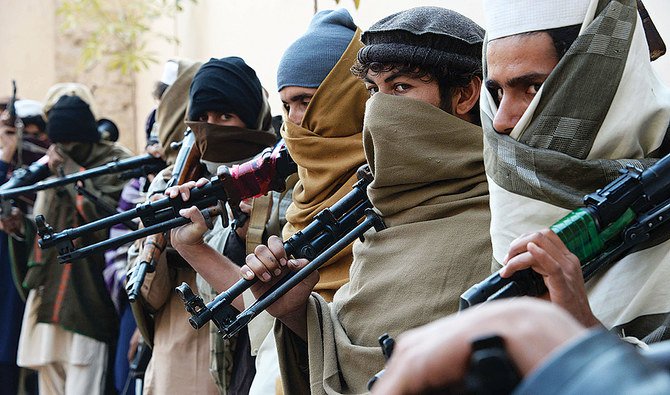Where is the US-Taliban dialogue on Afghanistan headed?

Momentum is once again building for a deal to end America’s longest war, as the US special envoy for Afghanistan prepares for a fresh round of negotiations with the Taliban.
Zalmay Khalilzad is currently on a multination tour that will take him to Afghanistan, Belgium, Germany, Pakistan, Qatar — where he will meet with Taliban officials — and the UAE by mid-June.
Jason Campbell, a RAND Corp. policy researcher, told Arab News: “There’s definitely increased activity surrounding peace, but whether this adds up to a feasible path forward for all stakeholders remains to be seen.”
Trump administration officials say the negotiations between Khalilzad’s team and the Taliban have resulted in a preliminary draft agreement.
The US wants the Taliban to renounce terrorism; break ties with Al-Qaeda and other terrorist groups; respect the Afghan constitution, especially the rights of women and minorities; and be willing to hold bilateral talks with the Afghan government.
The Taliban wants the withdrawal of all foreign forces from Afghanistan, its removal from US and UN blacklists, and the freedom to open a formal political office from which it can operate relatively independently.
The two sides are said to have made progress on the issue of a US troop withdrawal in exchange for guarantees that no transnational terrorist groups will be able to use Afghan soil to attack other countries. But they have been unable to agree on a common vision for Afghanistan’s political future.
All these developments are happening amid lingering political uncertainty in Afghanistan. Parliamentary elections conducted by the Independent Election Commission (IEC) in October last year were marred by fraud allegations and a surge in Taliban attacks.
President Ashraf Ghani, whose mandated term expired in May, is seeking re-election. But the presidential election, scheduled for Sept. 28, has already been postponed twice amid widespread skepticism about the IEC’s ability to organize a fair ballot.
“The appointment of Khalilzad as the special representative for Afghanistan reconciliation has elevated the profile of the topic, with more engagements occurring with public knowledge and media coverage,” Campbell said.
But a secondary effect of this has been the increased involvement of Russia and Afghan actors not connected with the government, he added.
At this stage, Campbell said, it is difficult to distinguish the importance of one round of talks from another.
“Without a single, legitimate negotiating partner in the form of the Afghan government, the Taliban has the opportunity to divide and conquer constituencies,” he added.
